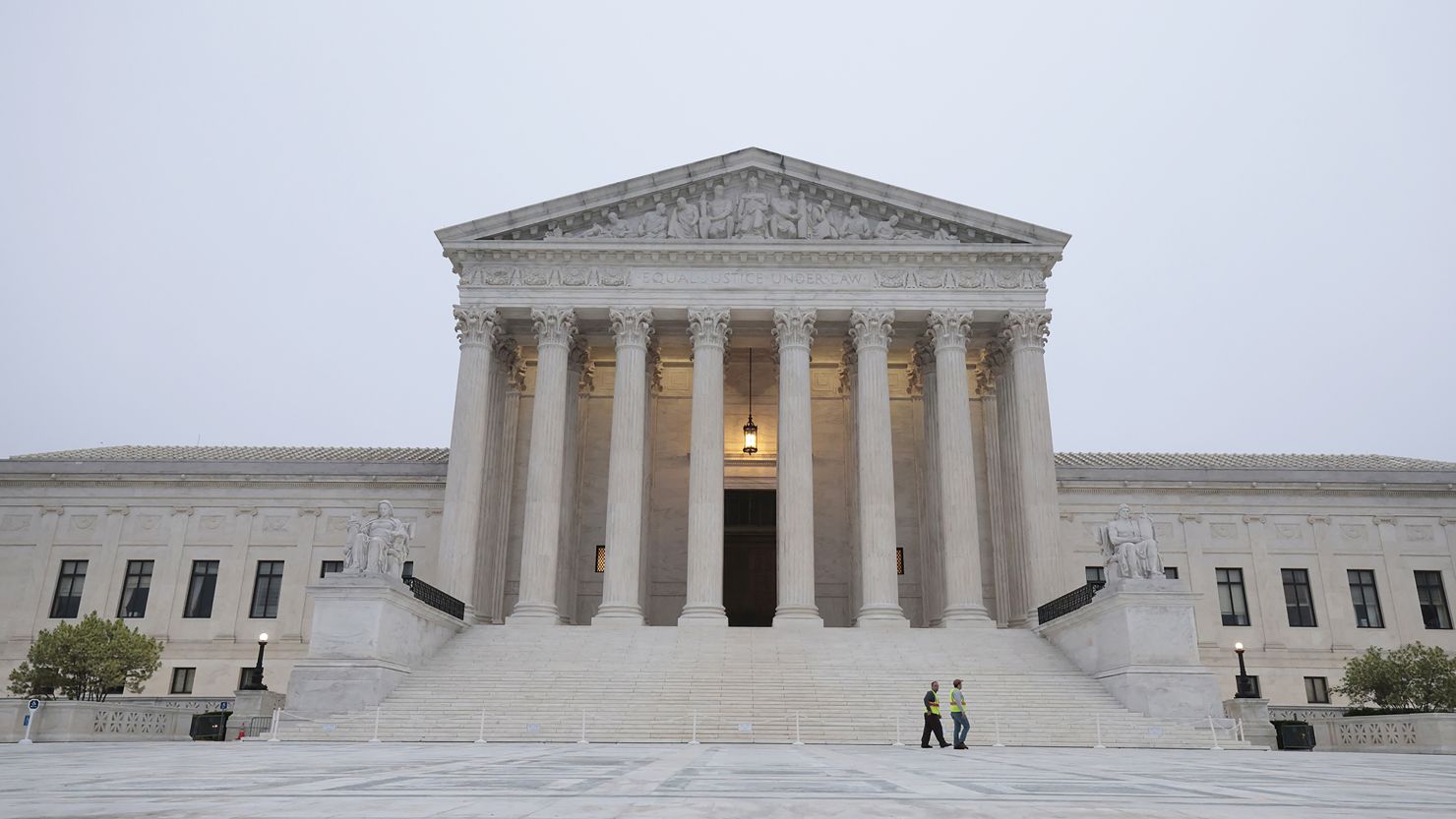Editor’s Note: CNN host Van Jones is the founder and a board member at Dream Corps, a national nonprofit organization working at the intersection of criminal justice reform, green economics and tech equity. Nisha Anand is the group’s CEO. The views expressed in this commentary are their own. View more opinion on CNN.
The Supreme Court’s just-completed term often found the nine justices pitted against each other along contentious and predictable lines. Two particularly controversial rulings found the Court’s conservatives prevailing over the liberal minority in its 6-3 decision striking down New York’s gun law and overturning Roe v. Wade by a vote of 5-4.

But one much overlooked decision broke with that familiar ideological divide. And it should give Americans hope that – at least on some issues – left and right in this country can still come together.
In Concepcion v. United States, the Court’s three liberal justices were joined by conservatives Clarence Thomas and Neil Gorsuch in a 5-4 coalition that longtime court watchers called “unusual.”

In addition to showing that partisan divisions aren’t always entrenched, the Concepcion decision last month was welcome news for thousands of people behind bars and their loved ones – for anyone, in fact, who believes in second chances.
Carlos Concepcion pleaded guilty to trafficking crack cocaine in 2009 and was sentenced to 19 years in prison. The following year, Congress passed the Fair Sentencing Act, which reduced the disparity in sentencing between crimes involving crack and powder cocaine. Then in 2018, Congress passed another measure, the First Step Act, making the new sentencing guidelines retroactive.
Concepcion believed that his sentence should have been reduced under the revised guidelines. He also argued that he deserved a reduced sentence because a prior conviction was vacated, and because he had shown spiritual and personal growth while incarcerated, including during his participation in a rehabilitation program for inmates. A federal judge, and later an appeals court, disagreed, saying they were compelled to apply the guidelines in place at the time of his sentencing.
But the Supreme Court’s eclectic majority disagreed, ruling in Concepcion’s favor. The justices, in a decision authored by Justice Sonia Sotomayor, said that courts should consider new facts and new laws when considering sentence reductions. Strict sentencing guidelines no longer need to bind federal judges. And judges can also take into account the work that people do to rehabilitate themselves while behind bars.
In essence, the Court opened the door to second chances for countless incarcerated people.
At the time of Concepcion’s original sentencing, offenders found guilty of crimes involving crack cocaine were punished as severely as someone convicted of a crime involving 100 times as much powder cocaine.
Disparities like this are the reason why a bipartisan majority in the House of Representatives last September overwhelmingly approved the EQUAL Act which would go one step further than the Fair Sentencing Act by eliminating the discrepancy in sentencing altogether.
The legislation currently enjoys filibuster-proof, bipartisan support in the Senate, which means passage is virtually certain. Once that chamber holds a vote on the bill, it will go to President Biden’s desk to be signed into law, affording judges even more latitude to reduce sometimes-unfair and onerous sentences.
The Supreme Court’s ruling in Concepcion could mean reduced sentences for thousands of people. It also means that the Court just made it easier to reward those who take steps to better themselves. And allowing judges to take new information into account will help ensure that rehabilitation becomes the main point of our criminal justice system.
Helping people transform their lives reduces crime. It keeps us all much safer than simply locking people behind bars with no hope for the future. If members of a deeply divided Supreme Court can recognize this, then surely the rest of us can as well.
Deep divisions within our country over issues like reproductive freedom mean that it’s more important than ever that we work together on issues where liberals and conservatives agree. Criminal justice reform is clearly one such area.
We believe that the Court’s Roe v. Wade decision was a travesty. Millions of Americans who love the country as much as we do, however, disagree. We believe – despite such disagreements – we can still find a way to work together to make this country better on the issues where Americans of all political persuasions see eye to eye.
Criminal justice reform has been one of the few bipartisan bright spots of the last few years, uniting Democrats, Republicans, former president Donald Trump, our current President Joe Biden and now, a bipartisan coalition of justices on the US Supreme Court.
Despite the partisan rancor of this current political moment, a left-right coalition has emerged to tilt our justice system toward rehabilitation and away from a “lock ‘em up” mentality.
We need more of that energy now.





